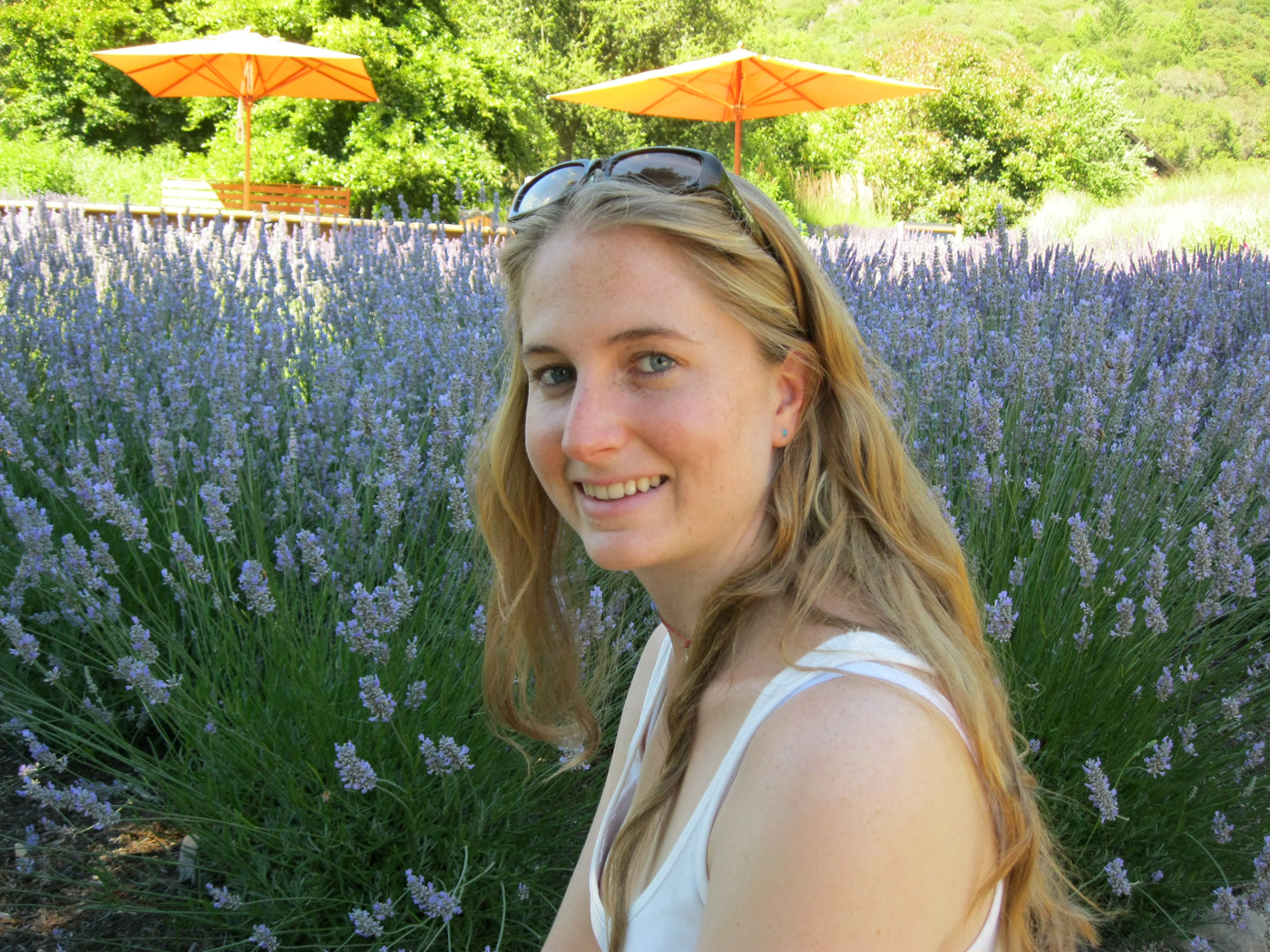It’s not surprising that Evanne St. Charles, class of 2011, was selected as the keynote speaker at this year’s California Higher Education Sustainability Conference hosted by California State University, Long Beach, July 10-14. Not only did Evanne double major in Geography and Art History (architecture and environment emphasis), graduate with Highest Honors, and win the Outstanding Achievement in Geography Award, Geography’s Distinction in the Major Award, and the Geography Chair’s Distinguished Service Award, but she also made outstanding contributions towards Sustainability while at UCSB.
Evanne was a major force toward the U.S. Green Building Council’s Leadership in Energy and Environmental Design (LEED™) for Existing Buildings Operations and Maintenance (EBOM) accreditation of Ellison Hall, Geography’s home base on the UCSB campus. She coordinated the Energy, Water, and Plug load audits and wrote a proposal to fund more efficient aerators, and her hard work brought Ellison Hall two short points away from LEED™ Platinum accreditation, which would make this building the oldest Platinum accredited building in the U.S. Evanne was also one of the co-creators of the Program for the Assessment and Certification for the Environment and Sustainability (PACES), a green assessment program which aims to make departments more sustainable, mainly through focusing on long-term, behavioral change in areas such as purchasing.
In addition to her internship with PACES, Evanne served as a student representative on UCSB’s Chancellor’s Campus Sustainability Committee which mandated that all new UCSB buildings are LEED™ Gold Certified or higher, one step above the UC System-wide policy that requires LEED™ Silver Certification, and which formulated interim policies regarding alternative fuel vehicles, the procurement of energy efficient appliances, obtaining about half of UCSB’s power from renewable sources by 2020, and initiating a campus water conservation policy in collaboration with the Goleta Water District. She was also an officer on the Environmental Affairs Board, the largest student environmental organization at UCSB, which created a student-led environmental education non-profit now working in seven schools with plans to expand to nearby counties, formed a Meatless Mondays campaign in the dining commons to educate students about the environmental impacts of eating meat, and organized a group of students working to bring a food cart to campus in order to serve the campus local, fresh and sustainable food at affordable prices.
Evanne plans to take the LEED™-AP EBOM exams in the near future and will be attending the University of Oregon’s Historic Preservation program this fall to earn a Master’s of Science degree: “I chose this program because it seemed to be a lot more hands on than other programs I looked at. For example, rather than finishing my degree with a thesis, I will finish with a terminal project. Since I would like to be a consultant for an architectural firm in historic preservation and LEED™, a project is much more applicable to my career goals than writing a thesis.”
Evanne’s championship of sustainability issues helped make the Geography Department one of the top Sustainability departments on the UCSB campus, and she will, undoubtedly, have a similar impact at the University of Oregon. UCSB Geography is honored to have mentored such an intelligent and dedicated alumna—we expect to hear much more about Evanne in the future, and we wish her all the best in her chosen career!


.jpg)

